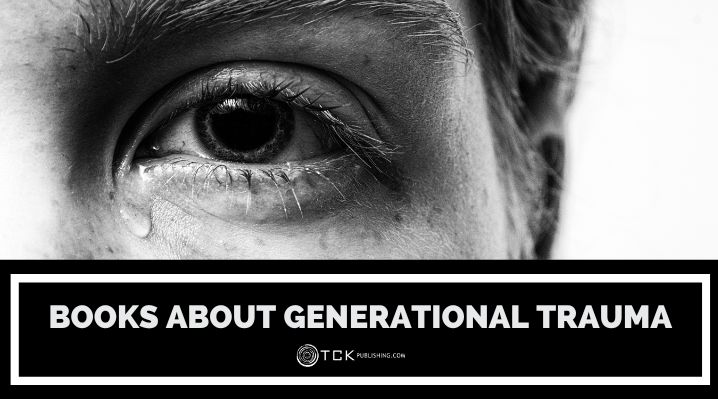
Trauma, often psychological or emotional, can be passed down to multiple generations within families. It’s hard to break the cycle, especially when it’s something you’ve known and internalized since childhood.
Generational Trauma Books
It’s hard to let go of trauma caused by experiences you haven’t gone through yourself. Here are some books to help you understand the signs, effects, and possible solutions to generational trauma.
1. It Didn’t Start With You by Mark Wolynn
Mark Wolynn investigates how generational trauma impacts people using scientific research, case studies, and personal stories. He shows that the challenges you face might not be your fault, but rather a result of unresolved issues from your family’s past.
Additionally, he shares ways to overcome these inherited patterns, offering new strategies for healing that may not have been explored before.
2. The Body Keeps The Score by Bessel van der Kolk
Through his over thirty years of experience working with trauma survivors, Dr. Bessel van der Kolk demonstrates how trauma affects not only the mind but also the body. It often shows up as physical symptoms or chronic health conditions.
He also recommends various treatments and other ways of healing, grounded in neurobiology, psychology, somatic therapy, and mindfulness practices.
3. Adult Children of Emotionally Immature Parents by Lindsay C. Gibson
Lindsay Gibson, a psychologist, explores the struggles of adults raised by emotionally immature parents. These parents are often distant, self-centered, or rejecting, causing their children to struggle with low self-esteem, setting boundaries, and forming close relationships.
She offers practical strategies and exercises to help you recognize and heal from the effects of such an upbringing—ranging from setting healthy boundaries to developing self-awareness.
4. How to Do the Work by Nicole LePera
Past traumas and patterns of behavior hold you back from living a fulfilling life. LePera, frustrated with the limits of traditional psychotherapy, seeks to develop a set of tools you can use to address your underlying emotional wounds and habits.
She introduces the concepts of your “ego” and “inner child” to help you better understand yourself. With these insights, you can start exploring your thoughts and feelings, becoming more mindful and self-aware along the way.
5. Heal Your Ancestors, Heal Yourself by Allie Duzett
Science shows that a person’s physical and emotional challenges can be passed down to succeeding generations. The process of healing though, is another story.
Duzett starts by discussing the recent developments in modern epigenetic science—the study of how your environment affects your genes. From there, she instructs on how to start healing from your inherited trauma.
6. My Grandmother’s Hands by Resmaa Menakem
Here, therapist Resmaa Menakem examines the intersection between race and trauma. Through personal anecdotes, historical analysis, and practical exercises, she talks about how racial trauma affects both individuals and society on a physical, emotional, and spiritual level.
7. The Deepest Well by Nadine Burke Harris
Drawing from her experience as a pediatrician, Harris explores the link between childhood trauma to chronic health conditions and social issues later in life. She talks about the importance of addressing adverse childhood experiences to prevent negative outcomes. She also gives ideas for people, communities, and leaders to prioritize and provide care that understands trauma.
8. The Magical Language of Others by E.J. Koh
Eun Ji Koh’s mother moves back to South Korea for work, leaving her and her brother behind in California when she was fifteen. She leaves behind letters, written in Korean that Eunji only understands later on.
Translating the letters, she reflects on their contents—her mother’s abandonment, both her grandmothers’ tragic pasts, and her own existence.
9. What My Bones Know by Stephanie Foo
Stephanie Foo is, by appearances, successful but secretly suffers from panic attacks. Later, she is diagnosed with complex PTSD—a condition due to ongoing trauma experienced over time.
After enduring years of abuse and abandonment, she realizes that her past still impacts her current health, career, and relationships. Seeking a solution, Foo interviews scientists, explores immigrant trauma, and uncovers family secrets from her birth country. In the end, she learns that trauma can’t be escaped, but it can be managed.
10. For Your Own Good by Alice Miller
Miller explores the darker side of parenting, revealing the dangerous effects that parental cruelty can have on children. Seemingly benign methods might perpetuate violent, psychological, and self-destructive harm.
She delves into the historical and cultural roots of these practices while also presenting solutions to heal and resensitize repressed individuals.
What other books about generational trauma do you recommend? Share them in the comments below!
If you enjoyed this post, then you might also like:
- 12 Best Parenting Books for Raising Toddlers, Teens, and Young Adults
- 11 Best Books About Bullying
- 10 Books About Trauma That Can Help You Heal

Cole is a blog writer and aspiring novelist. He has a degree in Communications and is an advocate of media and information literacy and responsible media practices. Aside from his interest in technology, crafts, and food, he’s also your typical science fiction and fantasy junkie, spending most of his free time reading through an ever-growing to-be-read list. It’s either that or procrastinating over actually writing his book. Wish him luck!
